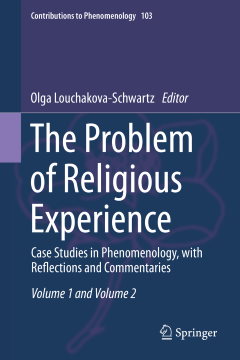Repository | Book | Chapter

(2019) The problem of religious experience, Dordrecht, Springer.
Presenting a phenomenological realism of religious experience, this chapter elucidates the function of the epoché in the phenomenology of religion. Some interpretations of the epoché preclude any commitments to realism. For instance, Husserl's epoché is typically understood as a methodological device for "bracketing" any assertions about the real world. Drawing on the works of Emmanuel Levinas and the Dutch phenomenologist of religion Gerardus van der Leeuw, I outline a different interpretation of the class="EmphasisTypeItalic ">epoché, one that affirms the reality of religious experience in terms of hospitable restraint that makes contact with the irreducible hiddenness or alterity of others. The epoché thus involves a tactful touch that leaves the other intact. Following Heidegger's existential turn in phenomenology, van der Leeuw and Levinas seek to live the epoché so that it is not a mere methodological device but a prereflective and religious mode of being fundamental to all human endeavor. The dynamic of touching that makes contact while leaving the other intact also resonates with the speculative realism of thinkers like Jean-Luc Nancy and Graham Harman. In a phenomenological realism, the epoché can assist efforts to clarify the historical and material conditions that make up religious experience while also affirming the real existence of religious experience through hospitality to irreducible alterity.
Publication details
DOI: 10.1007/978-3-030-21575-0_7
Full citation:
Mickey, S. (2019)., Living the epoché: a phenomenological realism of religious experience, in O. Louchakova-Schwartz (ed.), The problem of religious experience, Dordrecht, Springer, pp. 113-124.
This document is unfortunately not available for download at the moment.



